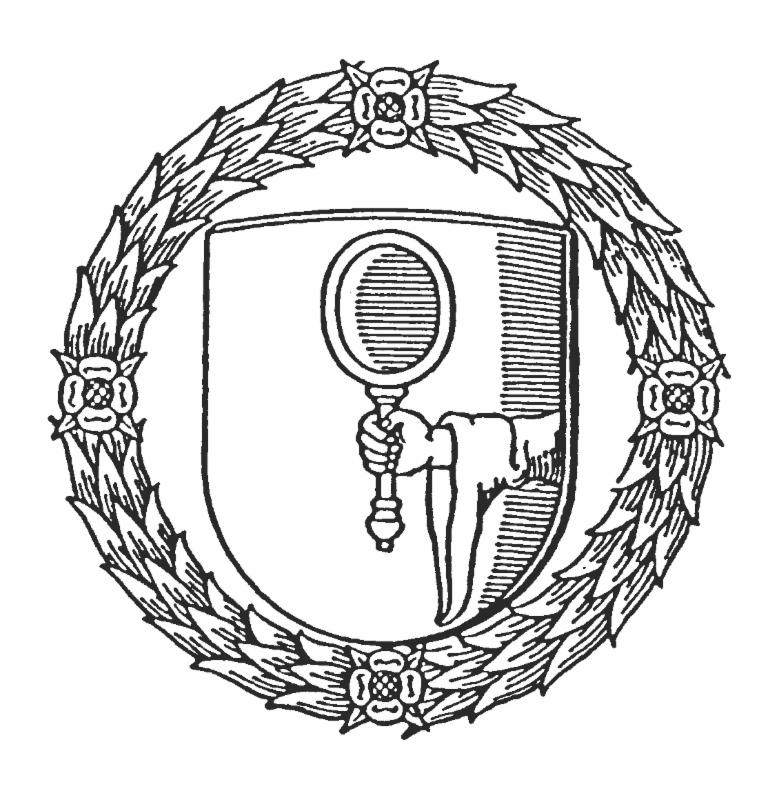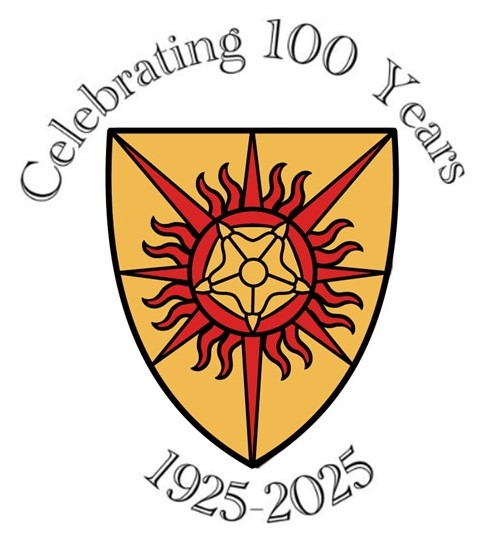 Greetings from the Editor’s desk at Speculum: A Journal of Medieval Studies. I write this column fresh from the Medieval Academy of America’s largest ever annual meeting at Harvard, in celebration of the centennial anniversary, where hundreds of medievalists from around the globe gathered to hear exciting new work, catch up with friends and colleagues, and of course, network and schmooze.
Greetings from the Editor’s desk at Speculum: A Journal of Medieval Studies. I write this column fresh from the Medieval Academy of America’s largest ever annual meeting at Harvard, in celebration of the centennial anniversary, where hundreds of medievalists from around the globe gathered to hear exciting new work, catch up with friends and colleagues, and of course, network and schmooze.
Though it might not be apparent to the casual observer, business occurs there as well, during the annual in-person meetings of the MAA Council and the journal’s Editorial Board. Among other things, the Council approved new appointees to the SPC Editorial and Book Review Boards. To the Editorial Board we welcome: Antoine Borrut, University of Maryland; Arthur Bahr, MIT; Gregor Kalas, University of Tennessee, Knoxville; and Charles Samuelson, University of Colorado, Boulder. As they rotate off the EB, my heartfelt thanks go to Mohamad Ballan, Caroline Goodson, Sierra Lomuto, and Samantha Katz Seal, as well as to Noah Guynn, who left the board last year. Their contributions to the journal have been invaluable.
To the Review Board we welcome Isabelle Cochelin, University of Toronto; Joshua Easterling, Murray State University; Deborah Hayden, Maynooth University; Andrew Hicks, Cornell University; Fontini Kondyli, University of Virginia, Charlottesville; David Lummus, Independent Scholar; Areli Marina, University of Kansas; Daniela Mairhofer, Princeton University; Laura Morreale, Independent Scholar; Jonathan Morton, Tulane University; Uri Zvi Shachar, Ben Gurion University; and Daniel Ziemann, Central European University. We are grateful to Nicolino Applauso, Roland Betancourt, Jessalyn Bird, Julia Burkhardt, Daisy Delogu, James Harr, Wan-Chuan Kao, Marcia Kupfer, Sara Powell, Michelle Sauer, Patrick Wadden, and Anna Zayaruznaya for their service to the book review section of the journal.
The Annual Meeting is also where prizes are awarded, and I am delighted to report that articles published in Speculum won the MAA’s two article prizes. Mohamad Ballan’s “Borderland Anxieties: Lisān al-Dīn ibn al-Khat ̣īb (d. 1374) and the Politics of Genealogy in Late Medieval Granada,” Speculum 98/2 (2023), was awarded the 2025 Article Prize in Critical Race Studies. You can read the full citation here. And “Fraudulent Counsel: Legal Temporality and the Poetics of Liability in Dante’s Inferno, Boniface VIII’s Liber Sextus, and Gratian’s De penitentia,” Speculum 98/3 (2023), by Grace Delmolino, has won the 2025 Van Courtlandt Elliott Prize. The full citation can be found here.
My hunch is that we have an issue full of prizewinners in the article lineup for April, now available online. Though it doesn’t technically constitute a cluster, three of the five articles treat early medieval topics. A multiauthored article by Janet E. Kay, István Koncz, Jordan Wilson, Rachel Singer, Timothy P. Newfield, Lee Mordechai, and Merle Eisenberg, “Burial Archaeology and the First Plague Pandemic,” opens the issue and argues the case that burial archaeology must be brought to bear on First Plague Pandemic studies (alongside cutting-edge scientific methodologies) to understand plague’s impact on individuals and communities. Kay, Wilson, and Singer discuss the article and its implications—past and present—with Reed O’Mara, the host of our latest episode of the Speculum Spotlight podcast. Sinéad Christine O’Sullivan’s “Book as Bibliotheca: The Emergence of the Commented Edition” moves us into the Carolingian world. She argues that the arrangement of commentary on a central text in a columnar format was an innovation of the Carolingian period. Valerie L. Garver examines another type of material artefact of the period in “‘Accomplished in the Art of Athena’: Carolingian Queens, Textiles, and the Politics of Clothing in the Ninth Century,” demonstrating how control over clothing and textile manufacture allowed queens to enter the political sphere. With Barbara Newman’s “Vrouwen lop: Of ‘Hermaphrodites,’ Alchemists, and Pregnant Ladies,” we leave the early medieval period behind and enter the world of Middle High German poetry. The article analyzes the Minneleich by the poet Frauenlob (d. 1318) and includes the first full translation of it. (It should be noted that this article was accepted before the search for the editorship of this journal was even announced. That being said, let’s consider it Barbara’s “inaugural.”) The article section concludes with “Unsettling Orientalism: Toward a New History of European Representations of Muslims and Islam, c. 1200–1450” by Marcel Elias, which traces the shifting representations of Muslims and the Islamicate world in later European crusade literature.
In addition to these five multidisciplinary articles that move us from Britain to the Holy Land and across time from the fifth century to the fifteenth century, we have a full slate of book reviews. Among many excellent reviews, I would like to highlight one: Speculum’s first digital humanities (DH) review. In this case, Samantha Seal reviews Adrienne Williams Boyarin’s groundbreaking DH project, Medieval Anglo-Jewish Women, 1154–1307. This first DH review constitutes the journal’s commitment to review DH projects, and toward that end, the Editorial Board has drafted guidelines, which are now posted on our website. We encourage colleagues to reach out to Associate Editor, Carol Anderson, if there is a DH project they are interested in reviewing or having reviewed.
This is my last column as Editor of Speculum as Barbara Newman will take the tiller on 1 July. Though my name is at the top of the masthead, look just beneath it and you will see many people whose invisible work has kept this ship on course and navigating into the future. My unbounded gratitude goes to our editorial team, led by Taylor McCall and Carol Anderson, and including Esther Jermann, Jane Maschue, Yunji Li, Dave Wilton, Jennifer Ottman, and Chris Cole. I am also grateful to our contributors, peer and book reviewers, the podcasting crew at the Multicultural Middle Ages, and the University of Chicago Press. They have been a dream team.
It has been my honor and privilege to serve the journal, the Medieval Academy of America, and our vibrant community of medieval scholars.
Thank you.
Katherine L. Jansen
Editor

 What a joy it was to see so many of you at Harvard a few weeks ago for the 100th Annual Meeting of the Medieval Academy of America! With more than 850 attendees, this was our largest and most expansive meeting ever, with attendees from twenty-three countries and a program that was rigorous, global, intersectional, and interdisciplinary. More than 500 presenters shared their work in concurrent sessions over the three-day conference. The Opening and Closing Plenaries took us to Africa: Kristina Richardson examined evidence for the trade in enslaved people from East Africa across the Arabian Sea, and Wendy Belcher presented her work on Ethiopic miracle stories of the Virgin Mary (a project that was awarded this year’s
What a joy it was to see so many of you at Harvard a few weeks ago for the 100th Annual Meeting of the Medieval Academy of America! With more than 850 attendees, this was our largest and most expansive meeting ever, with attendees from twenty-three countries and a program that was rigorous, global, intersectional, and interdisciplinary. More than 500 presenters shared their work in concurrent sessions over the three-day conference. The Opening and Closing Plenaries took us to Africa: Kristina Richardson examined evidence for the trade in enslaved people from East Africa across the Arabian Sea, and Wendy Belcher presented her work on Ethiopic miracle stories of the Virgin Mary (a project that was awarded this year’s 

